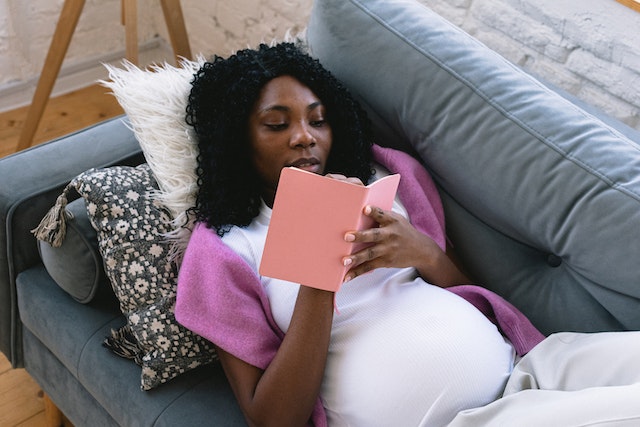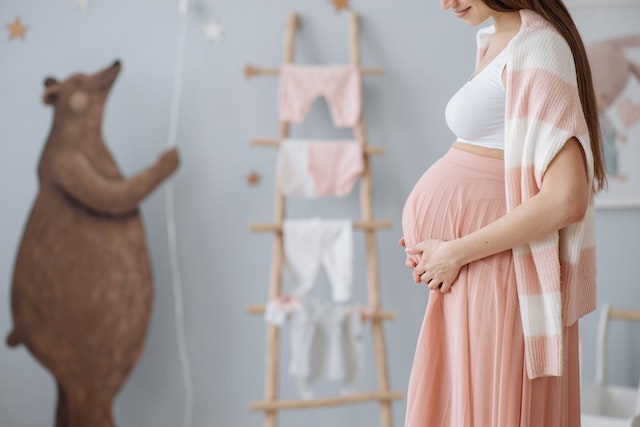Introduction:
Pregnancy is the most beautiful journey of a women’s life. Every woman wants to experience and enjoy each moment of her life as soon as she gets to know about her pregnancy. But, usually, they don’t experience any noticeable symptoms in week 1 of pregnancy or they don’t notice enough.
Doctors and other medical professionals count the first day of the last menstrual period as week 1 of pregnancy, but they just do it for the sake of predicting the expected due date easily. Practically, week 1 of pregnancy is the week after conception. This is the actual week 1 of pregnancy and in this article, we will explain the signs and symptoms of the week after conception.
When conception does happen??
Conception after the last menstrual period usually happens after a week or 10 days in the fertile window but it’s not a must. It can happen any time in the whole month but mostly the fertile window is the time when a woman conceives. The fertile window is the time when the ovary releases the egg. The fertile window starts after 3 to 4 days your last menstrual period ends and extends for 10 days. This time of the month brings more chances to conceive than other days.
After conception, the next step in the pregnancy process is implantation. Implantation is the process when the fertilized egg attaches to the wall of the uterus. This process of attachment of the egg breaks down the wall and attached blood vessels which might cause bleeding as well. This bleeding can be confused with menstrual periods as well.
Do you want to know more about the symptoms of week 1?? Keep on scrolling to know every symptom you might be feeling.
Symptoms of week 1 of pregnancy:
Usually, the first symptom that women practically experience during pregnancy is a missed menstrual period. But, that we get to know after about a month. In week 1 of pregnancy, many women don’t feel any symptoms at all. But, it’s not the case always.
Many women feel changes in their energy levels right after conceiving. They may feel more tired or fatigued than before. Another symptom they may feel is tenderness in breasts and mild cramping. One more common symptom that women experience after conceiving is changed urine patterns. Women who have conceived may need to pay more trips to the washroom than before.
Other than these general symptoms, two prominent symptoms that can give somehow clear hints about conception includes bleeding and cramping.
Bleeding can be confused with menstrual periods but you need to pay a little more attention to know whether this bleeding is menstrual or implantation. If bleeding occurs other than your period’s dates most chances are its implantation bleeding. Besides, implantation bleeding is different than menstrual bleeding because it is light, just spotting, or a pinkish discharge. Bleeding can last for a few hours or a few days.
Another common symptom that women can experience after the early days of conception is implantation cramping. Women can feel mild to strong cramping in the abdomen, pelvis, or lower back. If you don’t experience cramping before your normal menstrual cycle, you might get a clear idea that you have conceived but if you experience cramping before every cycle you may still confuse it with periods.
Women who are getting pregnant for the second or third time may get a better understanding of their symptoms than women who are conceiving for the first time. Other than these major symptoms, even week 1 of pregnancy comes with a lot of surprises. The surprises continue until you deliver a baby. Although every pregnancy is different and every woman experiences different signs some of them remain common. Let’s jump to some more signs that can help you understand your pregnancy even better.
Other Symptoms:
- Nausea or vomiting
- Sensitivity or tenderness in breasts
- More trips to the washroom and frequent urination
- Constipation
- Headache or migraine
- Elevated body temperature than normal
- Bloated or gas in the belly
- Heartburn
- Fatigue and more frequent mood swings
- Changed sense of taste i.e. food cravings or food aversions
- Heightened sense of smell
- Changed sleep patterns
Although all of the above-mentioned symptoms are not just limited to pregnancy and could be a sign of any other underlying condition, they can still be used to know if you have conceived or not. As long as you don’t miss a period or get a professional pregnancy test done you can’t be sure of your pregnancy.
Ready to take a pregnancy test?
The pregnancy test is the most practical way to get to know about your pregnancy. You can even get your pregnancy test done in week 1 of pregnancy.
Human Chorionic Gonadotropin (HCG) test:
Pregnancy tests measure the level of HCG hormone in your body. HCG hormone stands for Human Chorionic Gonadotropin, and it is known as the pregnancy hormone. Only pregnant women have this hormone in their blood.
Initially, the level of HCG hormone in the blood is very low. If you are getting the test done in week 1 of pregnancy you may get a negative result but you can get it tested again after 2 to 3 weeks if you miss your period.
Pregnancy test strips:
Another way to get your pregnancy checked at home is to get pregnancy test strips. But for this, you might need to wait for a week or two at least. Test strips check the level of HCG in the urine and change its color if positive. But, again the limitation here is it can come negative if it is done in the very early stages of conception.
Week 1 of pregnancy checklist:
Even if you are not sure about your pregnancy but planning to get pregnant, it’s better not to wait for confirmation. There are certain checks that you should keep ticking as soon as you plan to conceive.
- Start taking prenatal vitamins, especially folic acid
- Keep tracking your menstrual cycle
- Consult a gynecologist for a prenatal checkup
- Avoid or quit smoking and alcohol
- Limit caffeine intake
- Start exercising and stay active
- Follow a healthy balanced diet
- Discuss all your family history with your physician to avoid any complications
Conclusion:
Summing up our whole discussion about week 1 of pregnancy, it can be concluded that the most important concern of week 1 pregnancy is to get to know if you are pregnant or not. Many symptoms can be experienced but they are not common to all women. Despite the fact that you know about your pregnancy or not, you should start taking care of your health and get your body ready for a long journey of 9 months if you are already planning to get pregnant.
-
Pingback: Week 3 of pregnancy - Being Pregnant
-
Pingback: Week 4 of pregnancy - Being Pregnant
-
Pingback: Week 15 of Pregnancy - Being Pregnant






